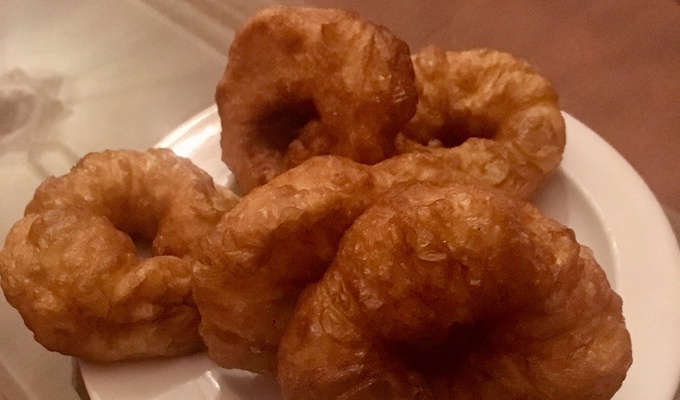Sfenj is a Maghrebi doughnut: a light, spongy ring of dough fried in oil. Sfenj is eaten plain, sprinkled with sugar, or soaked in honey. It is a well-known dish in the Maghreb and is traditionally made and sold early in the morning for breakfast or in the late afternoon accompanied by tea—usually Maghrebi mint tea—or coffee. The term sfenj is used in Algeria and other parts of the Maghreb. It is called bambalouni in Tunisia, and sfinz in Libya. In Morocco, the term "sfenj" is used, also sometimes nicknamed in the literature "Moroccan doughnuts". It is also called Khfaf or ftayr in Algeria, and is sometimes also dubbed as the "Algerian doughnut".
Outside the Maghreb, sfenj is often eaten by Moroccan Jews and other Sephardim in Israel and elsewhere for Hanukkah. Sfenj and other doughnuts are eaten for Hanukkah because they are fried in oil, commemorating the Hanukkah miracle wherein the oil that was supposed to light the lamp in the Temple in Jerusalem for only one day lasted for eight. Though sfenj can be made at home, Morocco almost always opt to purchase it from street vendors or bakeries, where they are commonly strung on palm fronds.
